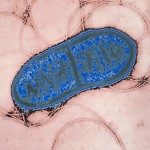The Bikard lab at Institut Pasteur in Paris is seeking to hire a postdoctoral researcher to work on CRISPR-Cas systems and their application to study and fight pathogenic bacteria. Technologies derived from CRISPR-Cas systems offer tremendous potential to modify bacterial genomes (1), control gene expression (2) or specifically kill virulent bacteria (3). Here are some of our focus of interest:
- We are deciphering the properties of Cas proteins in bacteria and their interaction with DNA repair pathways, providing insights into the mechanism and evolution of CRISPR-Cas systems as bacteriophage defense systems (4,5)
- We are refining CRISPR-Cas tools for bacteria and building powerful design tools using machine learning approaches (6,7)
- We are developing CRISPR screens as powerful tools to investigate gene function and decipher genetic interaction networks (8,9)
- We are engineering bacteriophages to use them as DNA delivery vectors, with applications to the development of sequence-specific antimicrobials (3)
The successful candidate will be able to define her/his own line of research within the scope of interest of the lab with the support of David and other lab members.
The expected start date is in the Fall 2020. The position is initially for one year, with the possibility of extension. Salary is commensurate with experience according to the Institut Pasteur guidelines.
Required skills:
- General microbiology and molecular biology techniques
Recommended skills:
- Genomics techniques (DNA sequencing, RNA-seq, Chip-seq etc.)
- Data analysis and statistics (R, Python)
Qualified applicants should send their CV, a statement of research interests and the contact information of two referees to david.bikard@pasteur.fr
References
- Jiang, W., Bikard, D., Cox, D., Zhang, F., and Marraffini, L.A. (2013). RNA-guided editing of bacterial genomes using CRISPR-Cas systems. Nature Biotechnology 31, 233–239.
- Bikard, D., Jiang, W., Samai, P., Hochschild, A., Zhang, F., and Marraffini, L.A. (2013). Programmable repression and activation of bacterial gene expression using an engineered CRISPR-Cas system. Nucleic Acids Res 41, 7429–7437.
- Bikard, D., Euler, C.W., Jiang, W., Nussenzweig, P.M., Goldberg, G.W., Duportet, X., Fischetti, V.A., and Marraffini, L.A. (2014). Exploiting CRISPR-Cas nucleases to produce sequence-specific antimicrobials. Nature Biotechnology 32, 1146–1150.
- Bernheim, A., Calvo-Villamañán, A., Basier, C., Cui, L., Rocha, E.P.C., Touchon, M., and Bikard, D. (2017). Inhibition of NHEJ repair by type II-A CRISPR-Cas systems in bacteria. Nature Communications 8, 2094.
- Bernheim, A., Bikard, D., Touchon, M., and Rocha, E.P.C. (2020). Atypical organizations and epistatic interactions of CRISPRs and cas clusters in genomes and their mobile genetic elements. Nucleic Acids Res 48, 748–760.
- Calvo-Villamañán, A., Ng, J.W., Planel, R., Ménager, H., Chen, A., Cui, L., and Bikard, D. On-target activity predictions enable improved CRISPR–dCas9 screens in bacteria. Nucleic Acids Res.
- Cui, L., Vigouroux, A., Rousset, F., Varet, H., Khanna, V., and Bikard, D. (2018). A CRISPRi screen in E. coli reveals sequence-specific toxicity of dCas9. Nature Communications 9, 1912.
-
Rousset, F., Cui, L., Siouve, E., Becavin, C., Depardieu, F., and Bikard, D. (2018). Genome-wide CRISPR-dCas9 screens in E. coli identify essential genes and phage host factors. PLOS Genetics 14, e1007749.
-
Rousset, F., Caballero, J.C., Piastra-Facon, F., Fernández-Rodríguez, J., Clermont, O., Denamur, E., Rocha, E.P.C., and Bikard, D. (2020). The impact of genetic diversity on gene essentiality within the E. coli species. BioRxiv 2020.05.25.114553.
-
Vigouroux, A., Oldewurtel, E., Cui, L., Bikard, D., and Teeffelen, S. van (2018). Tuning dCas9’s ability to block transcription enables robust, noiseless knockdown of bacterial genes. Molecular Systems Biology 14, e7899.



